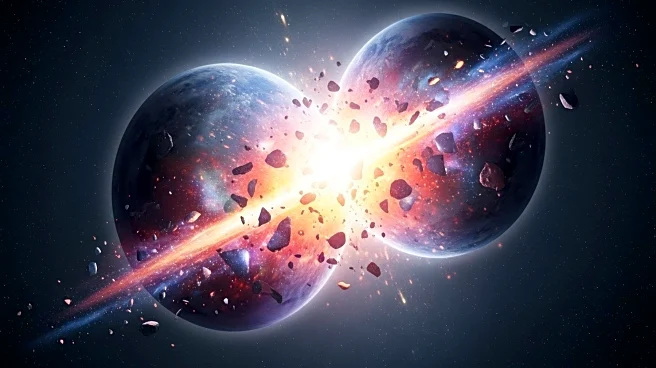What's Happening?
A new study suggests that a cataclysmic collision between early Earth and a Mars-sized body, known as Theia, may have delivered essential ingredients for life. This event, theorized to have occurred over 4 billion years ago, is believed to have contributed to the formation of the moon and brought volatile-rich compounds to Earth. These volatiles, including hydrogen and carbon, are considered building blocks of life. The study utilized chemical models to analyze isotopes from meteorites and Earth rocks, providing insights into the early solar system's conditions and the origins of life on Earth.
Why It's Important?
The findings offer a new perspective on the origins of life on Earth, suggesting that life-friendly conditions may have been facilitated by external cosmic events. This research highlights the complexity of life's emergence and the potential rarity of such conditions on other planets. Understanding the role of planetary collisions in delivering life's ingredients could influence future studies on exoplanets and the search for extraterrestrial life. The study underscores the significance of interdisciplinary research in unraveling Earth's geological and biological history.








